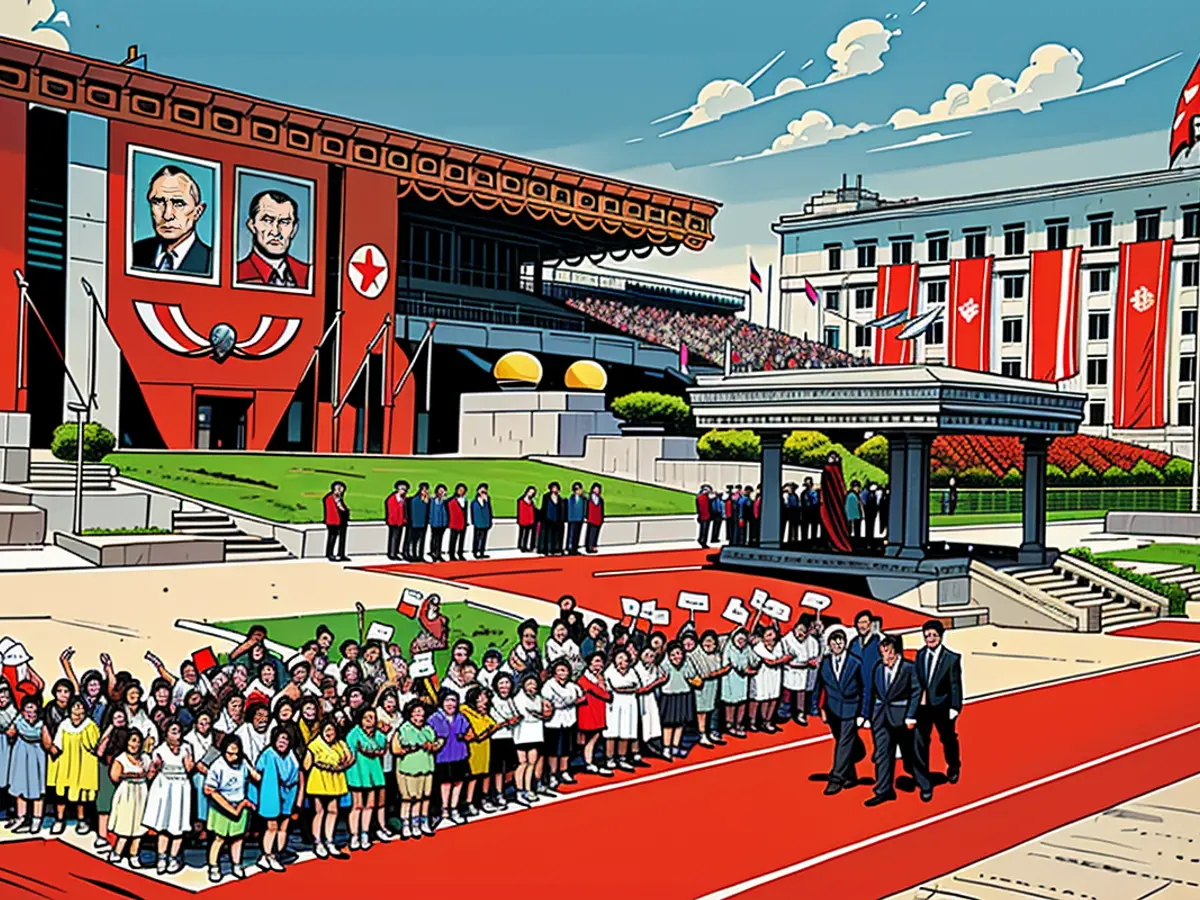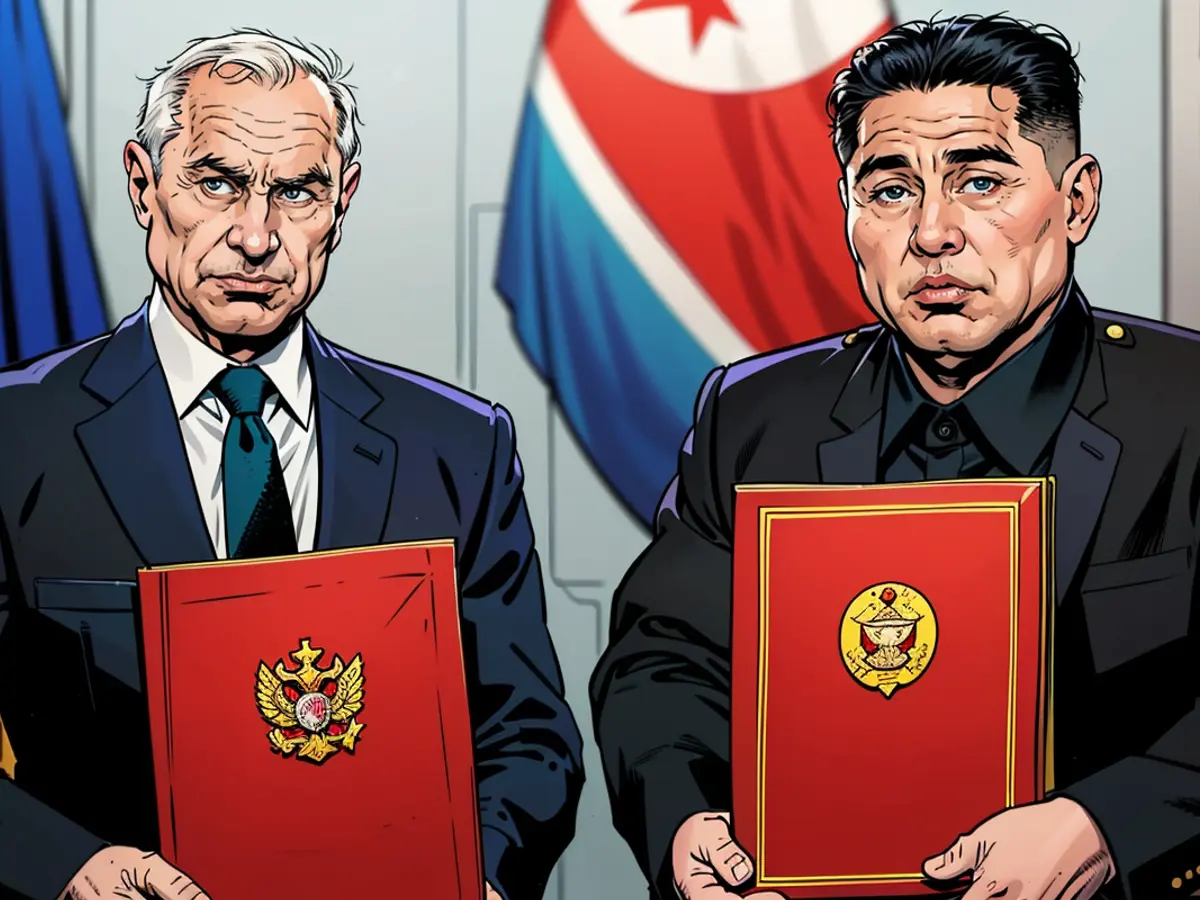Putin obtains a NATO-like defense alliance and a boost in image from his visit to North Korea.
In recent times, Putin has faced ostracization at international gatherings due to a warrant from the International Criminal Court for his actions in Ukraine. Nonetheless, he received an enthusiastic reception in Pyongyang this week. Crowds of kids waved Russian flags, and Putin's image adorned Kim Il Sung square, showing that his influence hasn't waned in certain regions.
In contrast to China, Putin wasn't relegated to a secondary role in this encounter. The rhetoric and the "comprehensive strategic partnership pact" signed by the two leaders left no doubt about their intention to unite against what Putin referred to as the "imperialist policy of the United States and its allies."
This pact seems to contain a provision similar to NATO's Article V, which according to Putin, ensures "mutual aid in the event of aggression against one of the parties to this agreement."
Putin further accused the West of violating international commitments by supplying F-16s and other weapons to Ukraine, hinting at a potential increase in military-technical cooperation with North Korea.
This implied military assistance between the two nations could escalate tensions with their neighbors and the West, raising questions about whether Russia's nuclear deterrent now extends to North Korea, and vice versa. The pact does not provide specific details on these matters.
Jo Bee-yun, Associate Research Fellow at Korea Institute for Defense Analyses, described the agreement as building upon what the two nations have been developing for months and years, but emphasized that the included clause is concerning.
There's also the pressing issue of whether this "military-technical cooperation" could result in more armaments being manufactured in North Korea and sent to the front lines in Ukraine. Both Russia and North Korea have denied this is happening, but Russia has previously criticized UN sanctions aimed at preventing North Korea from exporting weapons.
Russian media seized this opportunity to take jabs at the West, with headlines like "The West frets over Putin's visit to North Korea" appearing in Moskovsky Komsomolets, a national daily newspaper. Russian propagandist Vladimir Solovyov mockingly questioned Western concerns and suggested they were anxious because Russia was engaging with its neighbor. Solovyov also ominously declared that "we are already living in a Third World War."
This comment might indicate that Russia now feels it needs more than just nuclear bravado to deter the West from aiding Ukraine. The meeting with Kim Jong Un and the signing of this pact coincide with the anticipated delivery of US weapons to Ukraine, and the easing of restrictions on their use against Russia. Russia also needs weapons to maintain its strategy of wearing down and wearing out Ukraine.
While it may not be in Russia's strategic interest to directly fund or technologically enhance North Korea's nuclear capabilities and risk provoking China, it might want the West to believe it's prepared to do so.

Read also:
Despite the international backlash against Putin due to the Ukraine situation, his influence in Europe seems uncertain, as evidenced by mixed reactions at various gatherings. However, his visit to North Korea showed that he still maintains some level of influence in the world, with enthusiastic receptions and the display of his image in Pyongyang.







